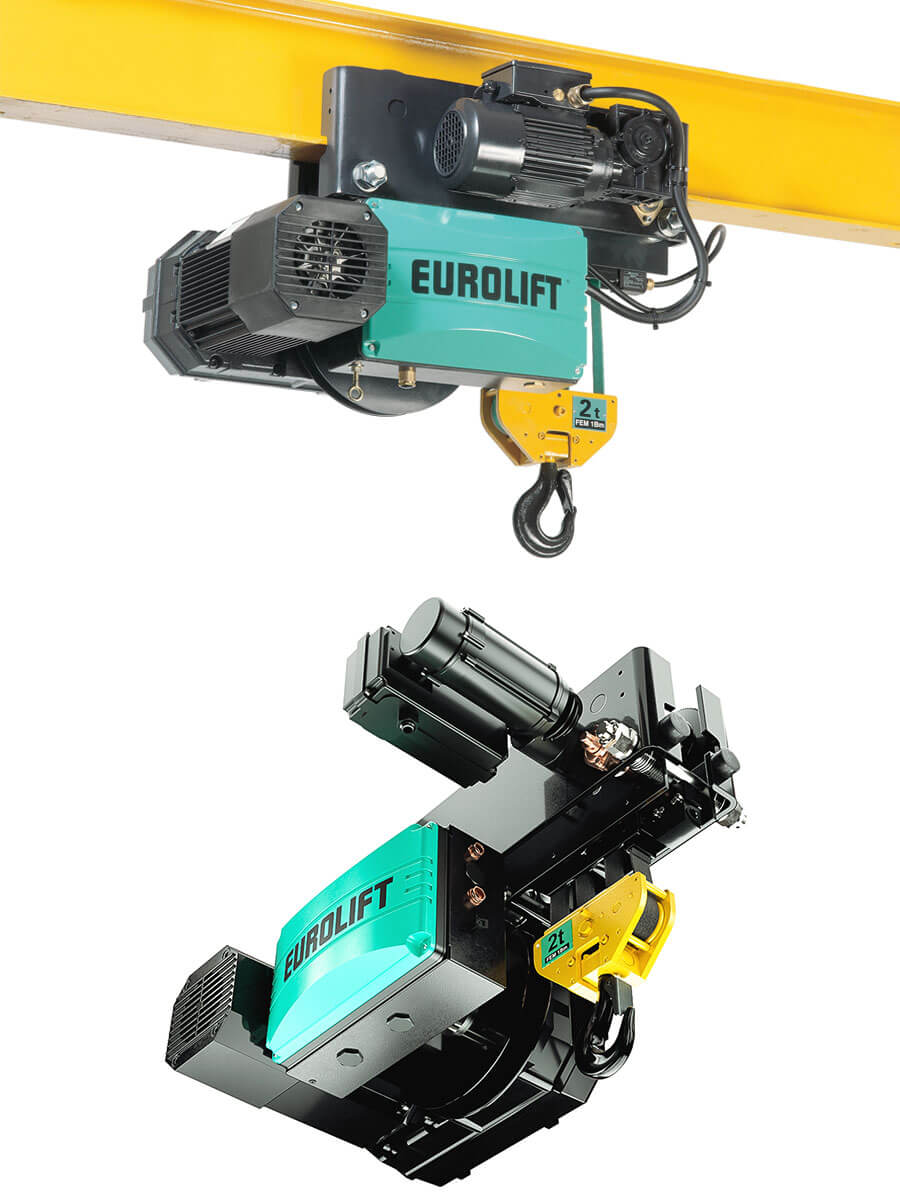Belt Hoists

BELT HOISTS in the food processing industry serve several critical purposes due to their specific design and capabilities tailored to meet industry requirements. Here are some of their primary uses:
- Sanitary Handling – Belt hoists are designed with materials and finishes that meet strict sanitary standards required in food processing environments. They are often made from stainless steel or other food-grade materials to prevent contamination and ensure compliance with food safety regulations.
- Gentle Product Handling – They are suitable for handling delicate food products, such as fruits, vegetables, meats, and baked goods, without damaging or bruising them during lifting or conveying processes.
- Vertical and Incline Transport – Belt hoists are used to transport food products vertically between different levels of processing equipment or to convey products along inclines, facilitating efficient workflow and space utilization in processing plants.
- Batch Processing – They are employed in batch processing operations to move batches of food products between various stages of production, such as mixing, cooking, cooling, and packaging.
- Automation Integration – Belt hoists can be integrated into automated production lines and systems, allowing for continuous and efficient handling of food products without the need for manual intervention.
- Hygienic Design – Their design often includes features such as easy-clean surfaces, smooth edges, and minimal crevices to facilitate thorough cleaning and sanitization, reducing the risk of microbial growth and cross-contamination.
Overall, Belt hoists play a crucial role in ensuring efficient, hygienic, and safe handling of food products throughout the processing stages, contributing to maintaining product quality, compliance with regulatory standards, and operational efficiency in the food processing industry.


 ISO 9001: 2015, ISO 14001: 2015, ISO 45001:2018 Certified
ISO 9001: 2015, ISO 14001: 2015, ISO 45001:2018 Certified